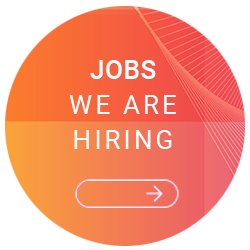Workshop at the Smart Country Convention 2019
This year’s Smart Country Convention took place in Berlin from October 22nd to 24th, during which numerous visitors were able to exchange information on possibilities for digitising administration and public services. One of the most pressing topics in this context is the question of how the government can remain sovereign even in digital times and how it can drive forward the digital implementation of its laws as independently as possible. Hamarz Mehmanesh, founder and CEO of mgm technology partners, together with Roland Krebs, Head of Department at the Bayerisches Landesamt für Steuern, and Stefan Schaffer, Senior Researcher at the Deutsches Forschungszentrum für Künstliche Intelligenz (DFKI), pointed out ways of doing this in a workshop.
The digitisation of laws belongs in the control of the state. Most citizens would certainly agree with this statement. However, reality is often different, as Hamarz Mehmanesh explained in his lecture at the Smart Country Convention: Legislative texts and amendments are interpreted by specialists from the specialist departments in the public administrations and guidelines are drawn up for operational implementation. In the ideal case this results in the adaptation of already digital procedures. But this is not necessarily the case in Germany either. Digital implementation usually requires cooperation with IT experts. From the guidelines of the specialist departments, specifications for the digital implementation are derived, a task that is all too often in the hands of consulting companies. The subject-specific logic set out in these specifications is then transferred by IT experts into the code, from which an application ultimately emerges that the citizen can use.
Model-based rule language enables sovereign action by the government
Since the specialist experts are often not involved in this translation process into code, misunderstandings or misinterpretations can occur on the part of the developers entrusted with the implementation. This can result in time-consuming clarifications. Therefore, there is a danger that the application ultimately implemented will not fully correspond to the actual specialist logic. In the case of a waterfall model in development, these discrepancies only become apparent very late in the development project. An additional problem is that the technical implementation is often in the hands of external IT service providers in view of the noticeable shortage of skilled personnel in public administration. Even with the greatest care on the part of those involved, a private company could thus have an influence on the digital implementation of German laws. This would limit the sovereignty of the government in digitising its laws.
A solution to this dilemma promises the use of a model-based rule language that can be read and interpreted both by humans and by machines. With the help of this language, which can also be understood without in-depth IT knowledge, the specialist experts are able to “model” the logic of the subject independently. The code is then automatically generated from the models and finally the important functional parts of the application are ‘generated’. In this way, the specialist and technical components of the application development are separated. Specialists are thus able to create the technical part of the application on their own responsibility. This makes technical adaptations considerably easier and often possible outside of rigid release cycles. Thus, the implementation of the technical logic of the laws, from legislation to the creation of executable programs, can remain entirely in the hands of the government and its specialist departments.
Digitisation of tax legislation through specialist models
An impressive example of how application development based on a model-based rule language presents itself in everyday administration was provided by Roland Krebs from the Bayerisches Landesamt für Steuern on the basis of the electronic tax return (ELSTER) in the course of the workshop. Every year, more and more users make use of this service. In 2018 alone, for example, more than 23 million income tax returns were submitted electronically to the tax authorities. Due to the high number of users, the obligation for companies to submit declarations electronically and the high frequency of contact between citizens, companies and the administration, ELSTER is of particular importance for the administration.
Due to the high complexity of the German tax law and its various regulations as well as the extensive changes of the law every year, it is especially important that the employees of the responsible departments are able to edit and update the application independently. In view of the more than 4 million rule versions entered so far, more than 7 million field versions and more than 7,500 data types, an efficient further development of the ELSTER procedure would otherwise hardly be possible. In his lecture, Roland Krebs presented in detail the various tools available to the specialists of his authority and explained how the digitisation of tax legislation is implemented sovereignly by the state.
Outlook: A form you can ask questions on?
Stefan Schaffer from the Deutsches Forschungszentrum für Künstliche Intelligenz (DFKI) presented the idea of voice control in e-government and tax. Accordingly, the models developed by the departments can serve not only as a basis for classical web applications, but also for a speech-based interaction channel. Pure AI-based services could hardly grasp the relationships mapped in complex specialist procedures, which is why a combination of AI with models even seems necessary.
Modern user interfaces, above all natural language, are suitable for achieving further acceptance among citizens. Short-term options for such a scenario include, for example, querying the status of the tax return and applying for an extension of the deadline. In the medium term, however, the aim should be to fill in the tax return in a context-related manner using Q&A in the form.







